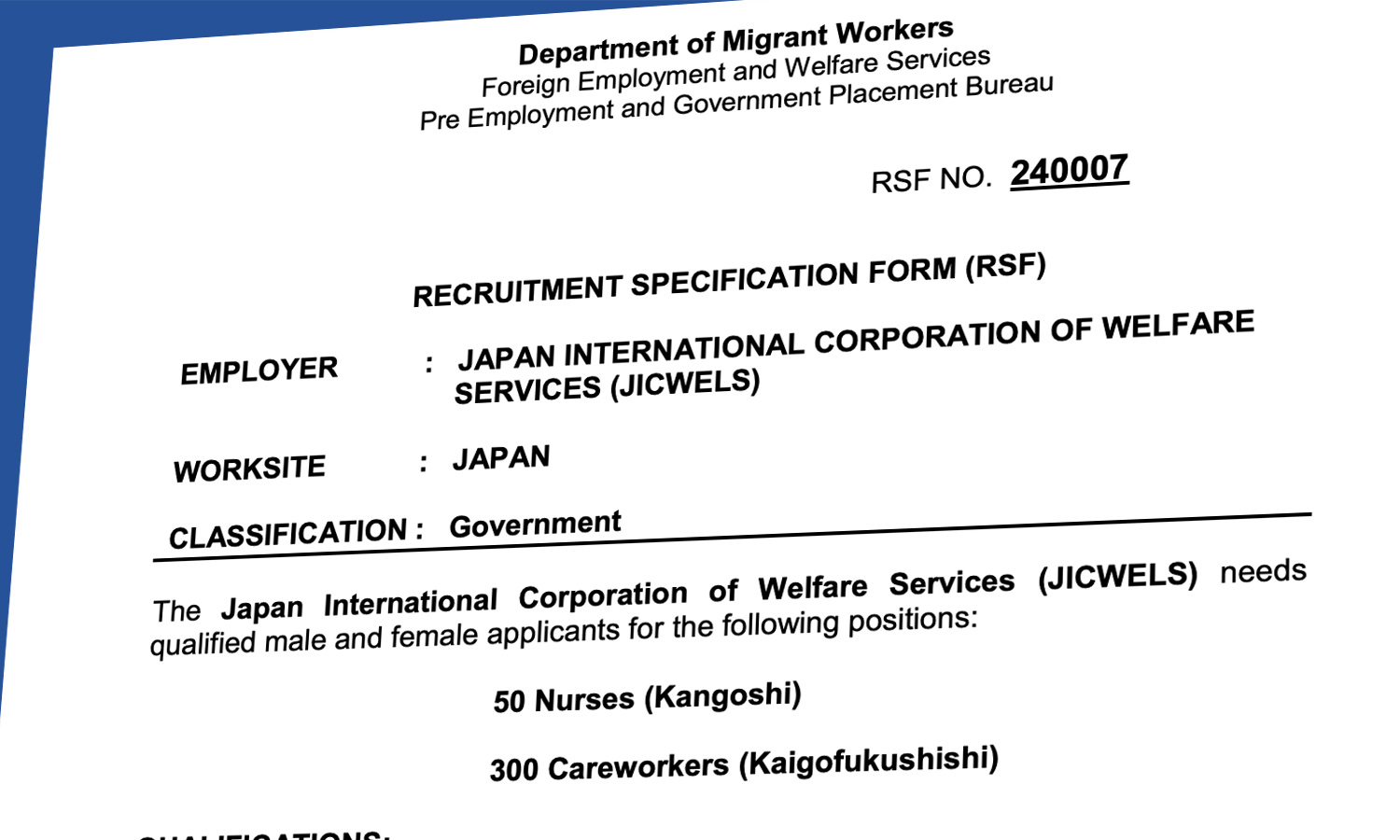Japan’s demographic landscape has been undergoing significant changes, with an aging population and a declining birth rate. In response to the growing demand for healthcare professionals, particularly nurses and careworkers, Japan has initiated a government-to-government program aimed at recruiting 50 nurses (Kangoshi) and 300 careworkers (Kaigofukushishi) from overseas.
Addressing Healthcare Workforce Shortages:
Japan faces a pressing need to bolster its healthcare workforce to provide adequate care for its aging population. The shortage of nurses and careworkers has been a longstanding concern, exacerbated by demographic shifts and the increasing burden of chronic diseases. By recruiting overseas professionals, Japan aims to alleviate these shortages and ensure quality healthcare services for its citizens.
Government-to-Government Collaboration:
The recruitment of nurses and careworkers under a government-to-government program signifies a strategic approach to addressing workforce shortages. This collaboration fosters bilateral relations between Japan and participating countries, promoting mutual understanding and cooperation in the healthcare sector. Moreover, it streamlines the recruitment process, ensuring transparency and adherence to regulatory standards.
Professional Development Opportunities:
For overseas nurses and careworkers, this program offers a unique opportunity for professional development and cultural exchange. Working in Japan provides exposure to advanced healthcare systems, innovative practices, and cultural diversity. It enhances their skills and competencies, enriching their professional journey and contributing to their personal growth.
Cultural and Linguistic Challenges:
While the program presents exciting prospects, overseas nurses and careworkers may encounter cultural and linguistic challenges in adapting to Japan’s healthcare environment. Cultural nuances, communication barriers, and unfamiliar practices can pose initial hurdles. However, with proper orientation, language support, and cross-cultural training, these challenges can be overcome, fostering a conducive work environment.
Integration and Social Support:
Facilitating the integration of overseas healthcare professionals into Japanese society is crucial for their well-being and productivity. Providing social support networks, access to community resources, and cultural orientation programs can ease their transition and foster a sense of belonging. Additionally, initiatives to promote diversity and inclusion within healthcare institutions can create a welcoming environment for all staff members.
Long-Term Impact on Healthcare:
The influx of overseas nurses and careworkers is expected to have a long-term impact on Japan’s healthcare landscape. It not only addresses immediate workforce shortages but also promotes knowledge exchange and best practices in patient care. Furthermore, it contributes to the global sharing of healthcare expertise, fostering collaboration and innovation in addressing common health challenges.
Japan’s initiative to recruit nurses and careworkers under a government-to-government program reflects its commitment to addressing healthcare workforce shortages and ensuring quality care for its aging population. By fostering international collaboration, providing professional development opportunities, and addressing integration challenges, this program holds promise for both Japan and overseas healthcare professionals. As the program unfolds, it is essential to prioritize support mechanisms and cultural sensitivity to maximize its effectiveness and promote sustainable healthcare delivery.
JOB VACANCIES HIGHLIGHTS:
RSF NO. 240007
EMPLOYER: JAPAN INTERNATIONAL CORPORATION OF WELFARE SERVICES (JICWELS)
WORKSITE: JAPAN
CLASSIFICATION: Government
The Japan International Corporation of Welfare Services (JICWELS) needs qualified male and female applications for the following positions:
- 50 Nurses (Kangoshi)
- 300 Careworkers (Kaigofukushishi)
Application Deadline: May 10, 2024
What are the qualifications?
Nurses (Kangoshi)
- Graduate of Bachelor of Science in Nursing with active PRC License;
- Minimum of three (3) years hospital work experience;
- Must be motivated and committed to work and study as candidate for “Kangoshi” to obtain a National License in Japan.
Careworkers (Kaigofukushishi)
- Graduate of Bachelor of Science in Nursing (with or without PRC license)
- Graduate of four (4) year course BUT should submit TESDA National Certificate II in Caregiving (NC II)
How to apply?
For all interested applicants, kindly visit DMW’s website via the links below.
Source: Department Of Migrant Workers (DMW)
Disclaimer: All of our job hiring articles are for informational purposes only. We are not directly related to the entities being featured. The source/s are indicated at the end of every article so you can further check the legitimacy of our posts.

